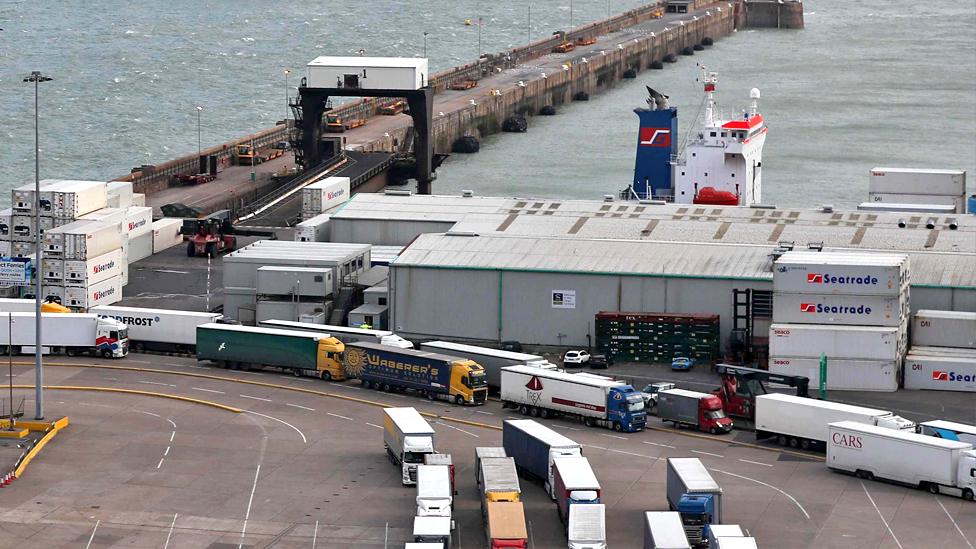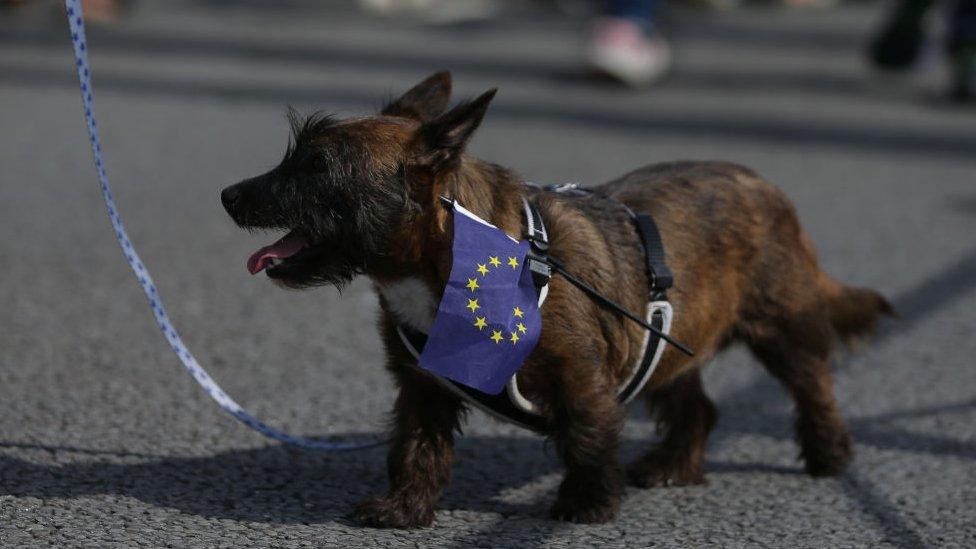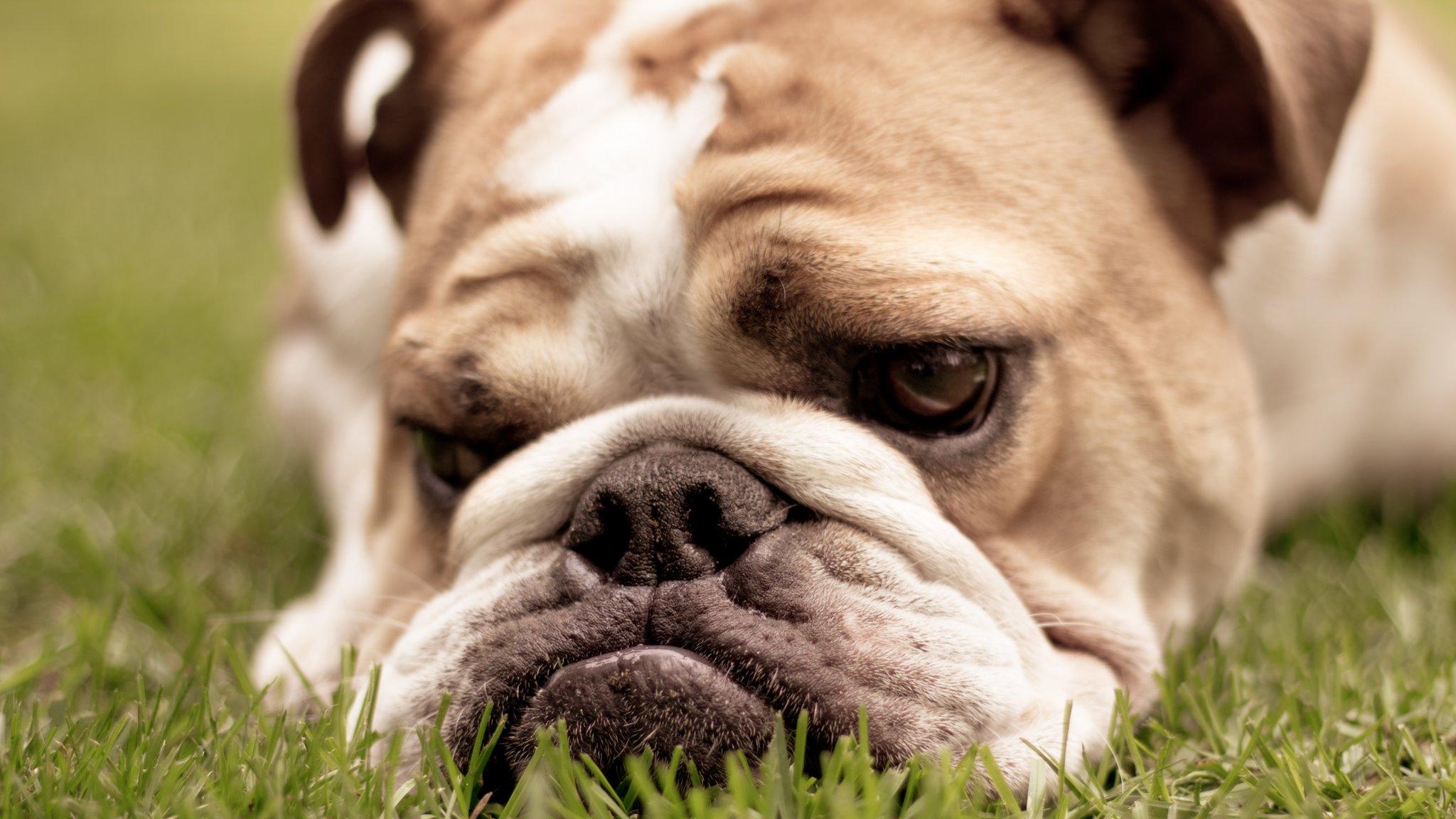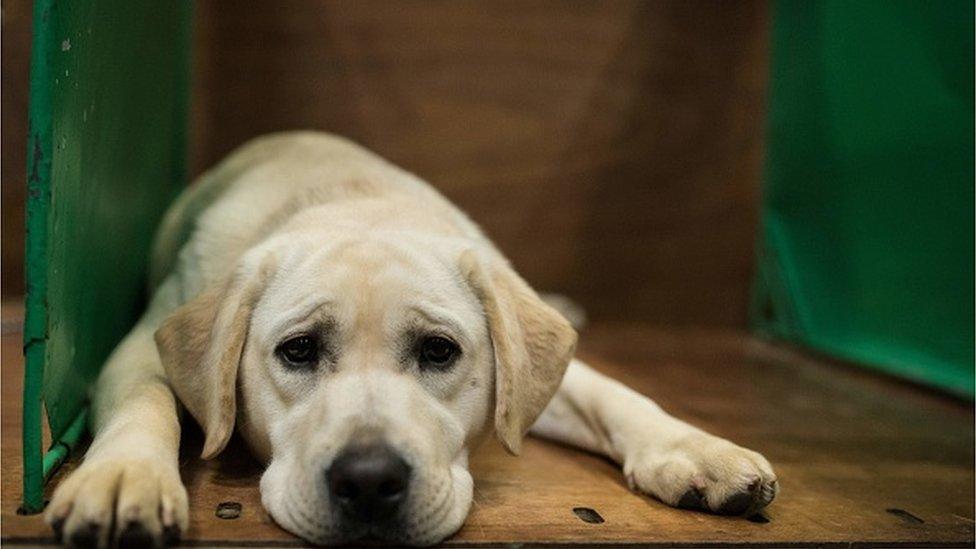Brexit: Vets concerned over animal medicines in no-deal
- Published

Vets say they are worried about potential problems in the availability of some animal medicines in the case of a no-deal Brexit.
The British Veterinary Association said it had concerns over short-shelf life products, such as vaccines.
And it urged any pet owners who are worried to speak to their vet.
The government said it was "working closely with the industry on extensive contingency planning to ensure there is no disruption".
It comes after the government published a no-deal Brexit assessment,, external which included warning of possible disruption to medicines for veterinary use.
Such disruption would have "potential detrimental impacts" for animal welfare, as well as for diseases which are spread between animals and humans, the document said.
Most of the veterinary medicines used in the UK are either produced in or enter via the EU, according to industry body the National Office of Animal Health (NOAH).
The government has confirmed that animal medicines are classed as "category 1" goods, which would be prioritised if there was disruption at the border after a no-deal Brexit.
Simon Doherty, the president of the BVA, said there were concerns over how lorry delays at ferry ports could affect short shelf-life medicines.
"Where we have products which are short shelf-life products, you need the supply chain to be maintained on a pretty constant basis," he told the BBC. "Most vaccines have to be kept in a refrigerator.
"If we run into a situation where there was a sustained part of time where a lot of animals weren't vaccinated we could have more substantial problems and losses in the industry.
"Where there is specific issues is around use of a lot of product at a specific time. We use a lot of anaesthetic in the springtime, we would be lambing, calving, dehorning calves."
Dr Sophie Aylett, who owns an independent farm animal vet practice in the Midlands with her husband, believes similar problems could arise in autumn - the time when the UK is due to leave the EU.
"We are approaching autumn and vaccine booster times," she said. "In late autumn, farms start to bring cattle into sheds to avoid the worst of the winter weather.
"By necessity this increases stocking density and cow to cow contact, therefore creating a higher risk of infectious disease transmission such as pneumonia. Normally farmers can vaccinate at-risk animals in advance but if there is a delay, it could affect their ability to do so, and consequently adversely affect animal welfare."
Advice for pet owners
And it is not just farmers who should be concerned about no deal, according to Mr Doherty, who said it could affect animals "across the board" - including zoo animals and pets.
"It's not as if there will be sudden parvovirus outbreaks in dogs. But where there could be potential problems, is if there isn't a supply of vaccines for an animal to get its booster at a particular time."
He does not anticipate there will be a shortage of cat and dog medicines, but the advice to pet owners would be to speak to their vet if they are concerned.
Meanwhile, for pets undergoing longer-term treatment, he added: "Don't leave the next prescription until you have got one tablet left."

A spokesman for the government's Veterinary Medicines Directorate said "veterinary medicines will continue to be readily available when we leave the EU on 31 October, whatever the circumstances of our exit".
They will be given priority on government freight to avoid disruption to supply, he said.
The government is also working with the industry to increase stocks of medicines, change supply routes and ensure they have early warning about potential issues with the supply chain.
NOAH said its industry has been working on detailed planning for all Brexit scenarios.
But if there was a no-deal Brexit, there are broader issues which could affect the availability of vet medicines, it said. It also raised concerns about vaccines.
"This disruption does represent a potential risk to controlling disease and an animal welfare issue.
"If preventative medicines such as vaccines are not available, there is a greater risk of disease in the population. This could increase the risk of its spread, including the spread of zoonotic infections."
The president of the Royal College of Veterinary Surgeons, Dr Niall Connell, said: "As the released Operation Yellowhammer documents demonstrate, any interruption in the supply of veterinary medicines would be a threat to animal health and welfare and public health."
The RCVS also said it was concerned that a no-deal could be a risk to the veterinary workforce, with half of new vets recruited from elsewhere in the EU each year.
- Published11 September 2019

- Published24 September 2018

- Published24 June 2021

- Published7 November 2018
